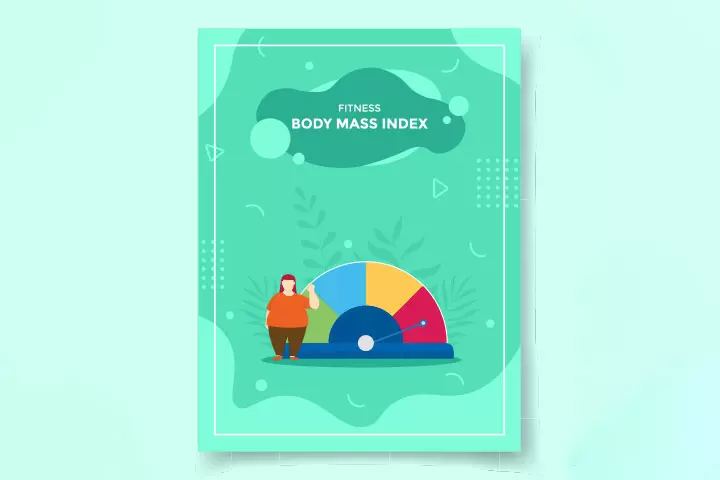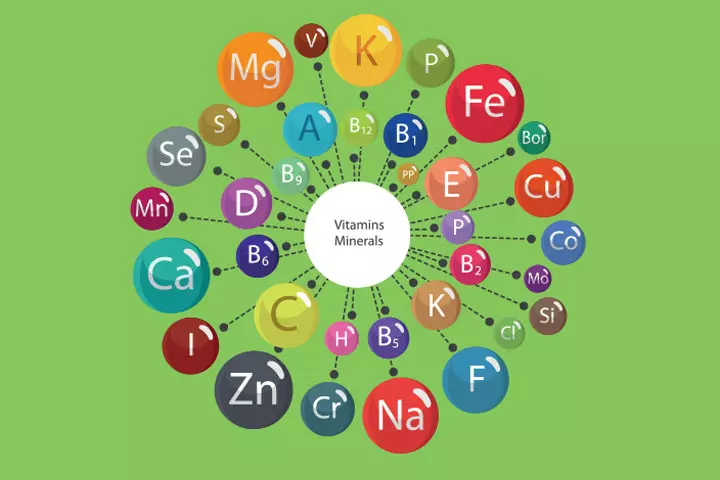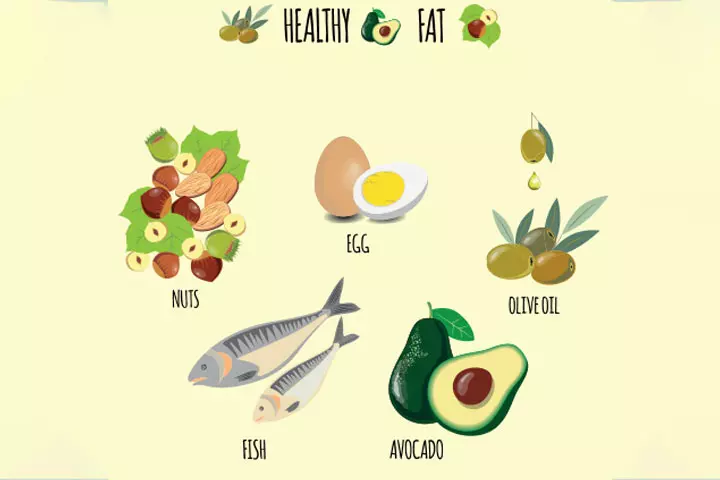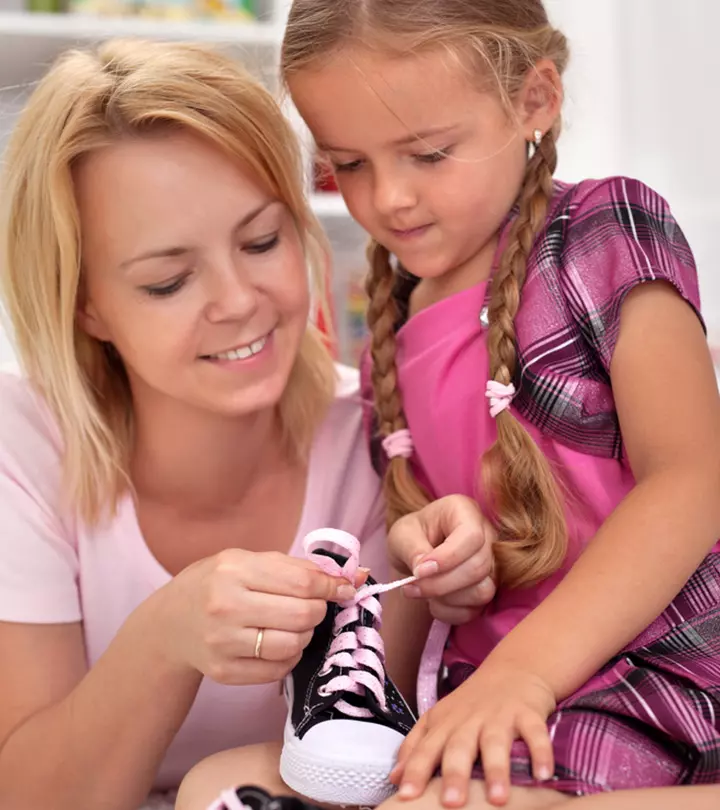
Image: Shutterstock
Puberty, which marks the transition from childhood to adolescence, is a natural process that varies for each individual. Some attain it earlier, while for some, there is a delay, which may make many teens and parents wonder how to hit puberty faster. While the desire to accelerate this phase is understandable, it is important to consider the importance of allowing this process to occur at its own pace. Focusing on making puberty happen faster may put unnecessary pressure and stress on teens. Understanding the changes that occur at this time and supporting healthy development can make this process easier for both teens and their parents. In this post, we will discuss the factors that affect puberty and discuss healthier ways to navigate this important stage of life.
Key Pointers
- Puberty happens at different times for different people, and it’s a natural process.
- Constitutional or late delay in puberty is normal and usually doesn’t require treatment, except for medical conditions.
- Healthy weight, nutrients, sleep, and exercise can help speed up puberty naturally.
- Avoid unhealthy weight loss methods and seek medical advice if there are any concerns.
Common Reasons For Delayed Puberty
Puberty starts between the ages of 8-13 for girls and 9-14 for boys (1). Puberty starts when the hypothalamus releases bursts of gonadotropin-releasing hormone (GnRH). This signals the pituitary gland to produce other hormones (gonadotropins), telling the ovaries or testes to mature and make sex hormones like estrogen or testosterone. If there’s a problem with any step in this chain, puberty may be delayed (2). Delayed puberty is characterized by the absence of physical signs of puberty by the expected age range (3). The criteria for defining delayed puberty differ slightly between girls and boys (4):
- Girls: No breast development by age 13 or no period by age 15
- Boys: No testicular growth by age 14
Additional symptoms include a lack of pubic hair development, short stature, a slower rate of growth compared to peers, and the uterus not developing as expected.
Delayed puberty can arise from a variety of factors, with the most common being a normal variation in development. However, it can also be a symptom of underlying medical conditions. Find below the common causes of delayed puberty (5) (6) (7) (8) (9) (10):
- Family pattern: Constitutional Delay of Growth and Puberty (CDPG) often runs in families. CDPG is one of the most common causes of delayed puberty. A study report states, “ The most common cause of delayed puberty was constitutional delay of growth and maturation (CD), which affected 53% of the subjects (63% of males and 30% of females) (11).” Parents who developed late may have children who do the same. A characteristic feature of CDPG is that the child will appear short for their age (9). Also, their bone age, as assessed by X-rays, is often delayed compared to their chronological age (7).
 Did you know?
Did you know?- Health issues: Conditions like diabetes, cystic fibrosis, or kidney disease can affect development. Certain specific genetic conditions are also associated with delayed puberty. Hypothyroidism, or an underactive thyroid gland, can also be a cause of delayed puberty. Autoimmune diseases, such as Hashimoto thyroiditis, Addison’s disease, and autoimmune ovarian failure, have also been linked to delayed puberty.
- Poor nutrition: In girls, having very low body fat, often seen in those who are extremely active in sports, can also contribute to delayed puberty. Eating disorders such as anorexia nervosa and bulimia, which involve severe calorie restriction and weight loss, are also known to delay puberty.
- Hormonal imbalances: Hormonal disorders involving the ovaries, testes, thyroid gland, or pituitary gland can disrupt the hormonal signals necessary for puberty, thereby delaying it. If the ovaries or testes are damaged or underdeveloped, it will lead to insufficient sex hormone production. Tumors in the pituitary gland or hypothalamus can also interfere with the production of gonadotropins, the hormones that regulate puberty.
- Other factors: Children undergoing radiation therapy or chemotherapy, often used in cancer treatment, can cause delayed puberty. Surgery involving the ovaries or testes can also have an impact. Certain medications have been associated with delaying puberty. Additionally, excessive exercise or physical stress, particularly in athletes, can sometimes lead to a delay in pubertal onset.
 Quick fact
Quick factTips To Hit Puberty Faster
Rather than worrying about ‘how to hit puberty faster,’ focus on how to stay healthy and fit, and you will reach puberty in time. Here are a few tips to go through puberty naturally without any delay.
1. Maintain A Healthy Body Weight

A healthy BMI requires that your child’s height and weight are proportionate. If your child is underweight, it can be the cause of delayed puberty. In fact, studies reveal that people who are healthy or even obese may hit puberty faster (13). However, obesity or excess weight comes with its side effects. So, to hit puberty faster, your child needs to maintain a healthy body weight and keep his or her body in proper shape. Maintaining appropriate calorie intake can help. Calorie needs vary by age, gender, and activity level during puberty. On average, girls ages 9–13 need 1,400–2,200 calories per day, while teen girls 14–18 need 1,800–2,400. Active girls often require more than less active peers. Teen boys 14–18 generally need more, around 2,000–3,200 calories daily, to support growth and maintain a healthy weight (14).
2. Intake Of Essential Nutrients

One of the most important factors that can affect pubertal development in kids is nutrition (13). Lack of nourishment or malnutrition prevents the required body changes from occurring when the child reaches the age of puberty. If your children eat healthy and nutritious food every day to meet their daily recommended intake of vitamins and minerals, they can hit puberty at the right time. Here are some vital nutrients that your teenager needs to hit puberty faster (15):
- Calcium & vitamin D: Calcium is an essential nutrient that enables growth and builds stronger bones in children. Equally important is vitamin D. Also, to overcome calcium deficiency problems like osteoporosis in the future, they should consume calcium-rich foods for kids. Teens ages 9-18 need 1,300 mg of calcium and 600 IU of vitamin D daily. Good sources include dairy like milk, yogurt, and cheese, as well as fortified options such as soy milk, orange juice, and cereals (16).
- Iron: Children should get the recommended dose of iron (11mg a day for adolescents) for healthy body growth. Iron is also vital for girls during puberty. Teen girls experience the onset of the menstrual cycle during puberty. To replace the blood lost during periods, it becomes important to intake iron-rich foods. If the child looks pale, a hemoglobin test should be done. Teens ages 14–18 need different amounts of iron: girls should get 15 mg daily, while boys need 11 mg. Good sources include meat, poultry, seafood, beans, nuts, fortified grains, and leafy greens (17).
- Protein: Protein is a vital nutrient that helps in the body’s growth and development of your teen. During puberty, protein helps in building body muscles and tissues and initiates overall growth. It is also important for the synthesis of pubertal hormones and enzymes. Teens need about 46g (girls) to 52g (boys) of protein daily. Good sources include meat, fish, eggs, dairy, and soy. Plant-based options like beans, nuts, and seeds also help meet daily needs (18).
- Fats: Young girls and boys need to maintain the proper amount of fats in their diet. Foods containing the right amount of fats help in growth processes and supply optimum energy to the body. They also help the body absorb vitamins A, D, E, and K. The healthiest fats are monounsaturated fats, found in foods like olive oil, peanuts, avocados, nuts, and canola oil. Including these in moderation supports overall health (19). Teens should get 25–35% of their daily calories from fats, about 1,400 calories for girls and 1,600 calories for boys, depending on their activity level (20).

- Zinc: Zinc plays an important role in growth, immunity, and puberty. But many teens don’t get enough. In fact, about 2 in 3 boys and 3 in 4 girls fall short of their daily needs (15mg for boys, 12mg for girls). While zinc is found in plant foods like bread and vegetables, it’s not as easily absorbed as the zinc in lean red meat, chicken, and fish, making these the best sources. A lack of zinc can slow growth and delay sexual development (21).
3. Engage In Physical Activity

Regular exercise plays a key role in a child’s overall development. Staying active helps regulate hormones and maintain a healthy weight, both of which support timely puberty (22). Encourage participation in sports, swimming, yoga, or simple daily workouts. Staying physically fit also boosts confidence and mental well-being, which are essential during adolescence.
 Quick tip
Quick tipAdam Blondin, a fifteen-year-old vlogger, shares a few tips on how he managed to hit puberty faster. He says, “The first step that made me hit puberty early was working out. Now, this is a little bit contrary to the popular belief of the fact that working out when you’re young stunts your growth, it doesn’t. It does the opposite… The reason working out made me hit puberty early is because I lost all the chubby body fat that I had. It regulated my hormones, which also helped me be less moody and stuff like that. But inevitably, it also would have increased things like my testosterone, which would have helped me hit puberty early (i).”
4. Sleep Well
A lack of adequate sleep can cause delayed puberty in children. In addition to nutrition, your kid’s body also needs enough rest to grow. A natural way to increase the secretion of growth hormone and hit puberty fast is to sleep. Research has proved that proper sleep increases the secretion of growth hormones in young adults (23).
5. Manage Stress
Chronic stress may affect the endocrine system, which also regulates hormones involved in puberty (24). Encourage relaxation techniques such as meditation, deep breathing, or engaging in hobbies to reduce stress levels. Maintaining a positive mindset and focusing on overall health rather than rushing puberty is essential for long-term well-being.
6. Stay Positive
Delayed puberty is normal in some children. There is not much you can do, and getting frustrated won’t help. In fact, getting worked up about late puberty will only affect their health, leading to loss of appetite and further delay in reaching the next stage. Parents should reassure children that puberty will happen naturally and encourage them to enjoy their childhood without undue stress.
If your child shows signs of delayed puberty, talk to a doctor. An early check-up can help find any underlying problems and decide if treatment is needed. If no medical issues are found, the doctor may suggest waiting to see if puberty starts on its own. If hormone deficiencies are detected, hormone therapy might be recommended to help trigger puberty. Additionally, treating any chronic health conditions can support normal development.
Frequently Asked Questions
1. How long will it take to hit puberty?
Puberty usually happens between the ages of six and 16. Girls usually hit puberty by the age of 11. But it might sometimes start as early as six or seven years old. Similarly, boys hit puberty by the time they are around 12, but it can also start by nine years of age or late (25).
2. How do I know if I hit puberty?
Following are the signs or secondary sex characteristics that show that you have hit puberty (25):
For boys:
- Deepening of voice
- Appearance of acne
- Increase in the size of secondary sexual organs
- Muscles strengthen
For girls:
- Development of breasts
- Gets periods
- Develops acne
- Hair in the pubic area, armpits, and legs
3. What are the negative effects of delayed puberty?
Delayed puberty could lead to lower bone density and shorter height than usual or when compared to peers during adulthood. There may also be an increased risk of metabolic and heart-related diseases. Additionally, it may impact social development, education, and self-confidence (26).
Children may worry that their peers have attained puberty before them and think about how to hit puberty faster. Delayed puberty may be hereditary or have reasons such as underweight and nutritional deficiencies. It may be tempting to opt for hormone treatments or other medications to reach puberty early. However, it is not a good idea unless an underlying medical condition is the reason behind the delay. Instead, it is wiser to ensure that your child is physically fit and making healthy food choices. Talk to a doctor if you are concerned about the delayed growth of your child.
Infographic: Tips To Hit Puberty Faster
Puberty is the period when children start to transition into adolescents, and there are a lot of changes happening in the body. The following infographic presents tips that can help your child hit puberty faster. Give it a read and share it with other parents as well.
Some thing wrong with infographic shortcode. please verify shortcode syntax
Are you worried about your child’s puberty onset? Learn more about early or late onset in this informative video.
Personal Experience: Source
MomJunction articles include first-hand experiences to provide you with better insights through real-life narratives. Here are the sources of personal accounts referenced in this article.
i. How to hit puberty early.https://www.youtube.com/watch?v=j61wAfr-ohw
References
- Puberty and Precocious Puberty.
https://www.nichd.nih.gov/health/topics/puberty - Delayed Puberty.
https://publications.aap.org/pediatricsinreview/article-abstract/22/9/309/36643/Delayed-Puberty - What are the symptoms of puberty precocious puberty & delayed puberty?
https://www.nichd.nih.gov/health/topics/puberty/conditioninfo/symptoms - Early or delayed puberty.
https://www.nhs.uk/conditions/early-or-delayed-puberty/ - Jennifer Harrington and Mark R Palmert; (2025); An Approach to the Patient With Delayed Puberty.
https://academic.oup.com/jcem/article/107/6/1739/6518217 - C.Sultan; (2012); Pediatric and Adolescent Gynecology: Delayed Puberty.
https://www.google.co.in/books/edition/Pediatric_and_Adolescent_Gynecology/0un8mkATdKUC?hl=en&gbpv=1&dq=delayed+puberty&pg=PA138&printsec=frontcover - Mauro Bozzola et al; (2018); Delayed puberty versus hypogonadism: a challenge for the pediatrician.
https://synapse.koreamed.org/articles/1516085336 - Swathi Mohanraj and Hemchand Krishna Prasad; (2025); Delayed Puberty.
https://link.springer.com/article/10.1007/s12098-023-04577-x - Delayed Puberty.
https://www.ncbi.nlm.nih.gov/books/NBK544322/ - Delayed Puberty.
https://kidshealth.org/en/teens/delayed-puberty.html - Ines L. Sedlmeyer and Mark R. Palmert; (2002); Delayed Puberty: Analysis of a Large Case Series from an Academic Center.
https://academic.oup.com/jcem/article-abstract/87/4/1613/2374954 - Helen Wolfenden and Fiona Ryan; (2014); Delayed puberty.
https://www.sciencedirect.com/science/article/abs/pii/S1751722213002308 - Ashraf Soliman et al; (2014); Nutrition and pubertal development.
https://pmc.ncbi.nlm.nih.gov/articles/PMC4266867/ - Ashraf Soliman et al; (2025); Nutritional interventions during adolescence and their possible effects.
https://pmc.ncbi.nlm.nih.gov/articles/PMC8972883/ - Jesse Jordan; (2025); The Role of Nutrition in Puberty and Adolescent Development.
https://www.longdom.org/open-access/the-role-of-nutrition-in-puberty-and-adolescent-development-110301.html - Calcium and Vitamin D Deficiency: What You Need to Know.
https://www.childrenscolorado.org/conditions-and-advice/sports-articles/sports-nutrition/calcium-and-vitamin-d-deficiency-what-you-need-to-know/ - Give Your Teen’s Iron a Boost.
https://www.eatright.org/health/essential-nutrients/minerals/give-your-teens-iron-a-boost - How Teen Athletes Can Build Muscles with Protein.
https://www.eatright.org/health/essential-nutrients/protein/how-teen-athletes-can-build-muscles-with-protein - A Teenager’s Nutritional Needs.
https://www.healthychildren.org/English/ages-stages/teen/nutrition/Pages/A-Teenagers-Nutritional-Needs.aspx - Puberty and Nutrition.
https://med.libretexts.org/Courses/American_Public_University/APUS%3A_An_Introduction_to_Nutrition_(Byerley)/APUS%3A_An_Introduction_to_Nutrition_1st_Edition/12%3A_Maternal_Infant_Childhood_and_Adolescent_Nutrition/12.07%3A_Puberty_and_Nutrition - Zinc: Good For Growth.
https://www.healthychildren.org/English/ages-stages/teen/nutrition/Pages/Zinc-Good-For-Growth.aspx - Menstrual Disorders Diet: Foods to Eat Avoid and Healthy Tips.
https://www.narayanahealth.org/blog/hormonal-imbalance - Y Takahashi et al; (1968); Growth hormone secretion during sleep.
https://pmc.ncbi.nlm.nih.gov/articles/PMC297368/ - Salam Ranabir and K Reetu; (2011); Stress and hormones.
https://pmc.ncbi.nlm.nih.gov/articles/PMC3079864/ - For Parents: What to Expect When Your Child Goes Through Puberty.
https://familydoctor.org/for-parents-what-to-expect-when-your-child-goes-through-puberty/ - Adult Consequences of Self-Limited Delayed Puberty.
https://publications.aap.org/pediatrics/article-abstract/139/6/e20163177/38735/Adult-Consequences-of-Self-Limited-Delayed-Puberty?autologincheck=redirected
Community Experiences
Join the conversation and become a part of our nurturing community! Share your stories, experiences, and insights to connect with fellow parents.
Read full bio of Dr. Mubina Agboatwalla
Read full bio of Sagari Gongala
Read full bio of Harshita Makvana
Read full bio of Dr. Joyani Das
















